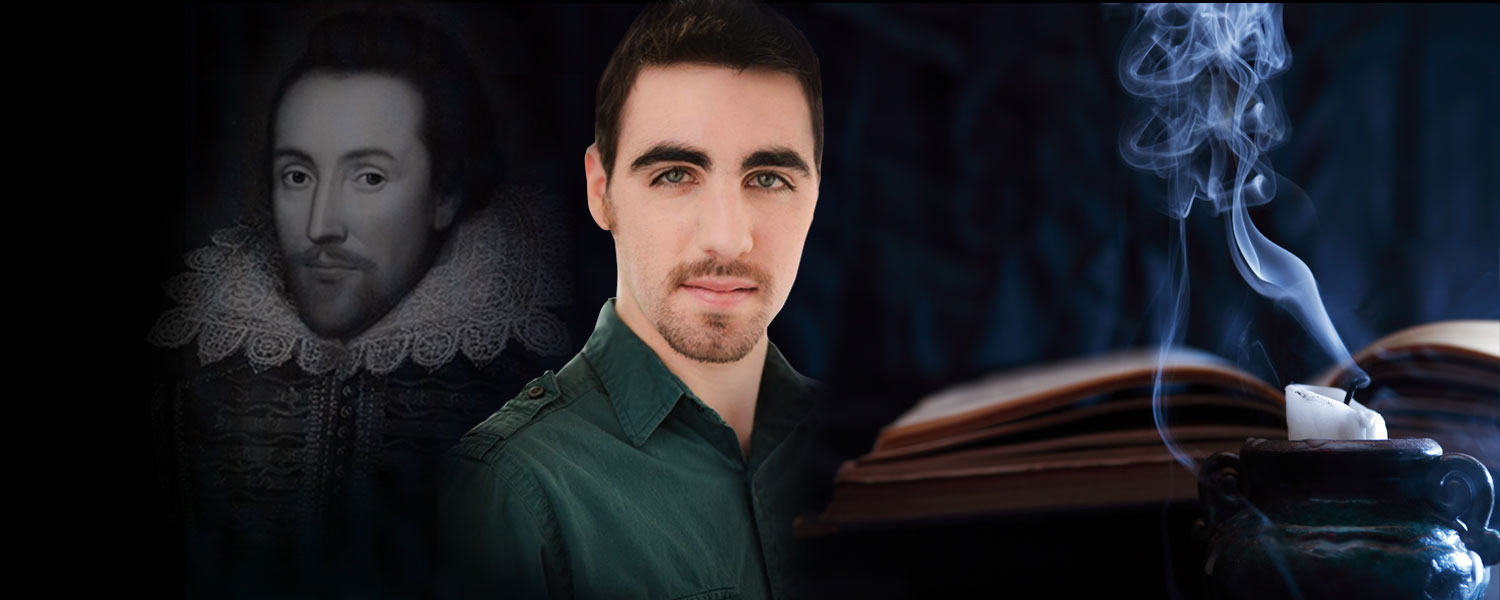To understand or not to understand.
That is the question Alex Funk is trying to answer.
Originally from Columbus, Funk is focusing his thesis research on the works of the writer who has shaped his acting and directing career to date -- William Shakespeare.

ŌĆ£What is the universality of Shakespeare? What does that mean?" Funk said. "We've been telling ourselves here in the west that Shakespeare is universal, but how universal is Shakespeare?ŌĆØ
Funk is seeking a Master of Fine Arts (MFA) in acting, and he recently presented his research as a finalist in the university's annual three-minute thesis competition.
Following the presentation, Funk sat down with ┬ķČ╣ė░į║ State Today to discuss what he's hoping to discover.
Listen:
So far, Funk has discovered that even a basic understanding of Shakespeare's characters can differ around the globe.
ŌĆ£There is a group that takes Hamlet to Africa, to different places in Africa, and they produce Hamlet. And when they get to the ghost scene, that culture doesn't recognize it. Doesn't understand it. Because ŌĆśghostsŌĆÖ to them mean something entirely different. A ŌĆśghostŌĆÖ is not a thing for them.ŌĆØ
Funk's acting and directing credits are loaded with moments that have brought him closer to understanding Shakespeare's intentions with his plays. Among Funk's favorites from his stage career are As You Like It (Rosalind), A Midsummer NightŌĆÖs Dream (Demetrius, Oberon/Theseus), Much Ado ┬ķČ╣ė░į║ Nothing (Benedick), Macbeth (Hecate/Malcolm), Hamlet (Hamlet) and Romeo and Juliet (Mercutio/Prince)

ŌĆ£So it makes me wonder like in other cultures with, you know, with Shakespeare is it still getting across? Is it the language that is universal? Or is it the performance part of it? Is it the storytelling aspect of it?"
Moving forward, where does Funk go next? He'd like to put the Bard to the test via readings and performances with different audiences.
ŌĆ£So what I want to do is take a group of theater people who know what they're talking about, a group of non-theater people who think they know what theyŌĆÖre talking about, and a group of people who may have never heard of Shakespeare before or are like ŌĆśI don't know what that isŌĆÖ (and) putting a speech in front of them -- like maybe Hamlet's 'To Be or Not To Be' speech -- and asking them what does this mean? What are you taking away from this? What do you think this character wants?ŌĆØ
The journey to that understanding will only make Funk a better actor, director and teacher of Shakespeare's works, believing that many will draw the same conclusion that he often does: Plays are meant to be performed.
"Having a professionally trained actor do that speech and see if the results are the same," Funks said. "Are we connecting with the language? Is it the language that is universal? Or is the connection that we make with the character being performed by a human being in the space with you that makes it universal?"

